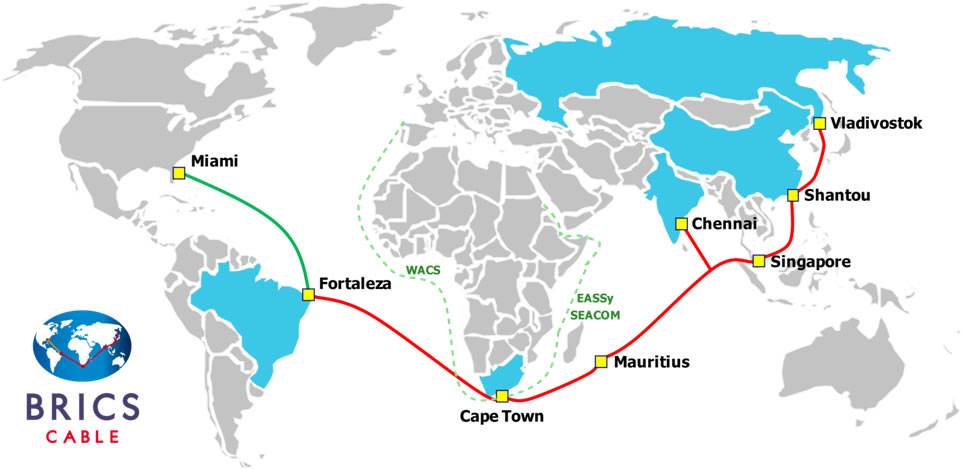News of the laying of a BRICS-cable triggered public attention as news of laying telegraph cables did a century ago. The ‘cable rush’ by Britain, Germany and France – then major industrial and colonial powers – heralded the start of cable geopolitics which still exist today. Despite all the promises of the end of geography and Internet ‘virtuality’, geography remains as important as ever. Are we facing a renewed interest in cable geo-strategy?
In Part 1 of this article, we will look at the emergence of cable geo-strategy. In a subsequent article we will discuss parallels between telegraph and Internet cable geo-politics, including the potential impact of a BRICS cable. With all its limitations as a teacher, history can provide some useful insights, at least, when it comes to what should be avoided.
Invention of the telegraph and cable geo-politics
The telegraph, for the first time in human history, effectively detached communication from transportation. Until the invention of the telegraph, the speed and reliability of communication depended on different means of transportation available at the time; for example, foot messenger, horseman, and ship.[1]
Like the Internet today, the telegraph developed very quickly, in the matter of a few decades. ITU statistics show that in 1868, 29 million messages were sent; this increased to 121 million in 1880 and to 329 million at the end of century. Adopted from globalresearch.ca




